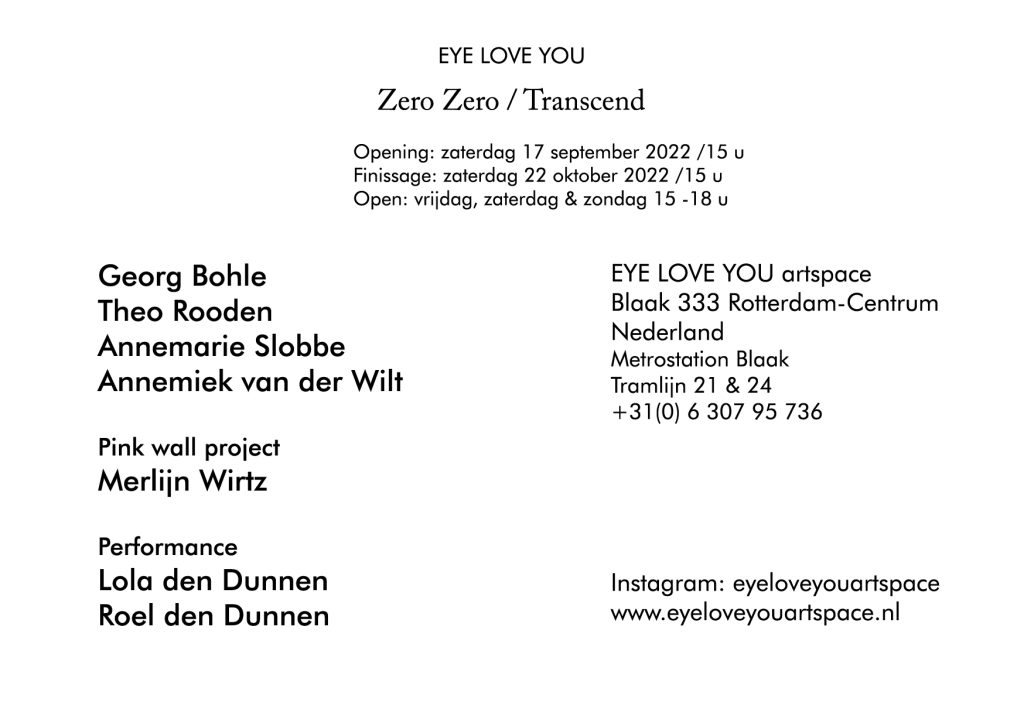OPENING – SATURDAY 17 SEPTEMBER – 15u


Transcend / Transcendence / Self-transcendence
Transcend
- To pass beyond the limits of (a category or conception, for instance).
- To be greater than, as in quality or intensity; surpass.
- To exist above and independent of (material experience or the universe).
Transcendence
In everyday language, “transcendence” means “going beyond”, and “self-transcendence” means going beyond a prior form or state of oneself. Mystical experience is thought of as a particularly advanced state of self-transcendence, in which the sense of a separate self is abandoned.
Examples of transcendence in a sentence:
“On the one hand, these experiences often involve a very personal and private experience of awe, a sense of transcendence.” — Alison Gopnik
“There’s George, head down, tormenting his guitar to transcendence.” — James Parker
“Escape no longer happens through self-transcendence; instead, it’s by seaplanes and speedboats.” — Bonnie Johnson
Self-transcendence
The act of transcending oneself or the capacity to transcend oneself.
Self-transcendence means that the individual’s own needs are put aside to some degree in favor of service to others.
“If you’re going to be a leader, you’re going to have to have a very loose relationship with this thing you call ‘I’ or ‘me,'” he shouted. “Maybe … life is not about the self but about self-transcendence!” — The New York Times
And awe itself can lead to self-transcendence: the experience of shedding one’s sense of self to feel part of something larger.
